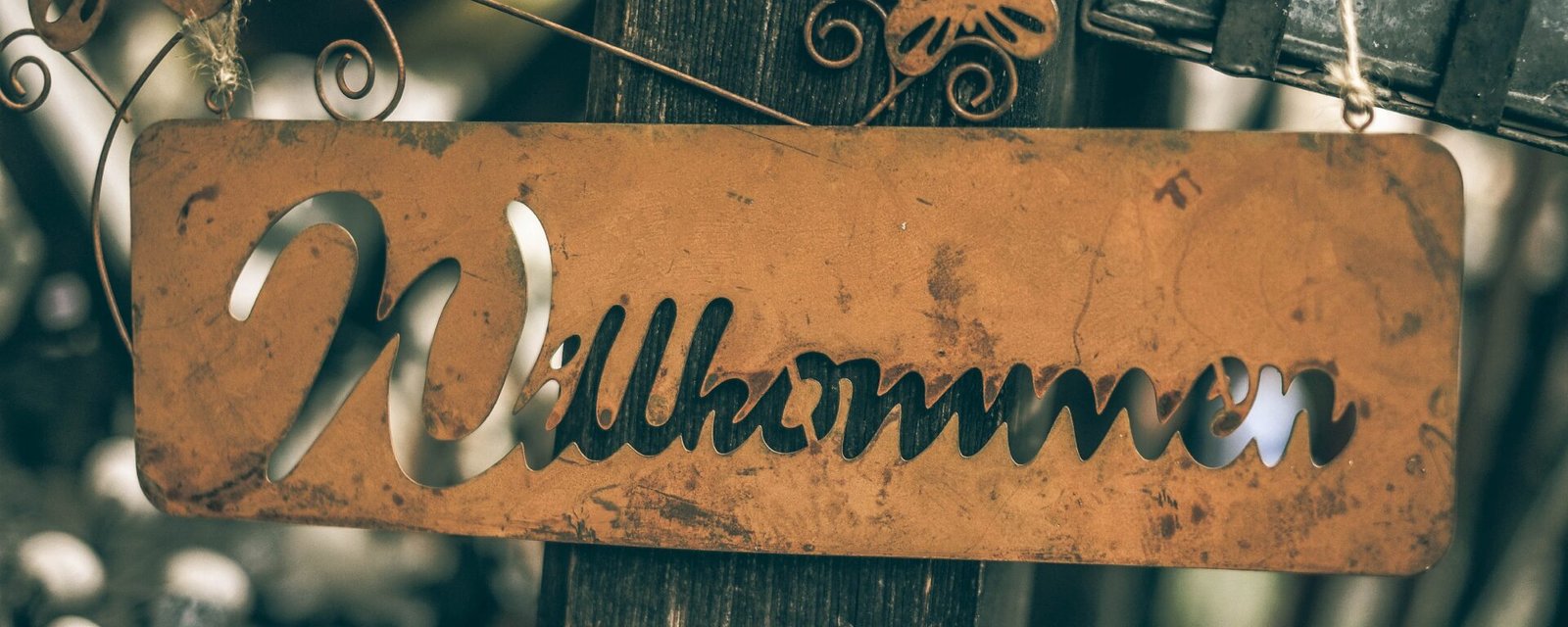German Introductions and Greetings Lesson 1. So, How do you say hello and introduce yourself in German? The basics of the German language for you. Greetings, saying goodbye and basic phrases to start speaking German.
Therefore, Welcome to first basic lecture of German Language. While, We hope that the material prepared in this article is helpful to you.
In order to learn a language properly, you have to start with the basics and work you way up. Without laying a good foundation, you will feel insecure when speaking advanced German.
German vs English: Differences & Similarities
Los geht’s! (Let’s go!)
Table of Contents
Saying hello
To greet someone we can say “Hallo” (hello) in German language.
There are many ways to say hello in German language. While, “Hi” is a more casual version of “Hallo“.
“Guten Tag” is a formal version of “Hallo“.
Depending on the time of day, the way you say hello can change, but no matter the form, they can all mean hello. In Germany, People respect higher authority with their choice of certain phrases. The more formal phrases for example are as follows:
- Guten Morgen! Good morning. / Hello.
- Guten Tag! Good day. / Hello.
- Guten Abend! Good evening. / Hello.
Saying Goodbye
There is a variety of expressions used for saying good-bye in German language.
We’re going to learn some interesting ways to say bye.
Los geht’s! (Let’s go!)
We say Auf Wiedersehen to older people, people who are higher in status than us, and to strangers, to show them respect! ”Auf Wiedersehen” = Wieder (again) + sehen (see) and means: Until we see each other again.
“Auf Wiedersehen” is more formal than “Tschüss“. The rules are the same as for “Guten Tag“: older, seniority, respect.
“Auf Wiedersehen” is a formal way to say goodbye. “Tschüss” is an informal way to say goodbye.
The phrase Gute Nacht, or good night, is usually said when you are leaving the person with whom you are speaking and it is nighttime, or when going to bed.
More in detail about good bye is as follows!

Schönen Tag! Have a nice day!
Schönes Wochenende! Have a nice weekend!
“Wochenende” is a combination of “Wochen” (weeks) and “ende” (end).
If someone you know well says “Schönen Tag!” or “Schönes Wochenende!”, you can say “Dir auch!” If it’s someone you don’t know well, you should answer with “Ihnen auch!”
If you would like to tell someone that you’ll see them soon, you can use bis bald. Bis means “till” and bald means “soon”.
In addition to saying “see you soon”, you can also say “see you later” in German. This is bis spâter.
Introducing yourself
Hallo! Ich heiße Farrukh!
We can spell it “heiße” or “heisse“. The ß stands for a double s.
We can say “ich heiße” or “ich bin” to introduce ourselves. They both mean: I am.
While, you can also say, Mein Name ist (your name)……
“Nice to meet you” in German is: Freut mich.
Freut mich auch!. “Freut mich” means: Nice to meet you. “Auch” means: too.
Saying how you are
In German, we only say “Wie geht’s?” to people we know well. We usually don’t ask strangers or people who are higher in status than us.
Is It ok to say “Wie geht’s?” to your boss?
Not unless your boss happens to be your friend.
We can answer “Wie geht’s?” with “Mir geht’s gut.”
We can answer “Wie geht’s?” with “Gut, danke.” It is polite to say “danke”.
With “Wie geht’s dir?”, we can ask how someone is feeling.
“Wie geht’s dir?” and “Wie geht’s?” have the same meaning. “Wie geht’s?” is short for “Wie geht’s dir?”.
We answer with “Mir geht’s super” when we’re feeling very good.
Understanding a short conversation in German:
Hallo Farrukh. Wie geht’s?
Hi Ali. Mir geht’s super. Wie geht’s dir?
Mir geht’s nicht so gut.
You can write “geht’s” or “gehts”.
Saying where you come from
Woher kommst du? “Woher” literally means: “where from“.
Ich komme aus Deutschland. We use “ich komme aus” to say where we are from. While, We spell “komme” with a double m.
We say “Ich komme aus” + country to tell people our country of origin. Some countries need a little word like “der“, or “den” before them.
| Ich komme aus Deutschland. (I’m from Germany.) |
| Ich komme aus der Türkei. (I’m from Turkey.) |
| Ich komme aus den USA. (I’m from the USA.) |
Saying where you live
Wo wohnst du? Wo” means: where
Hi, ich bin Judy. Ich wohne in England.
To say where I live, I use “ich wohne in” followed by a country.
Can I attend A1 German exam with Self Preparation?
Relevant Vocabulary
Vielleicht! Maybe
Ist das Essen? Is this food?
Bitte! Please
Allas gut? All good?
Großartig! Great
In ordnung! Alright
Was gibt’s! What’s up
Viel besser! Much better
Nicht gut! Not well
Nicht Schlecht! Not bad
Mach’s gut! Take care
Relevant Phrases
Schönen Feierabend! Have a nice evening.
Schönen tag! Have a great day
Schönes Wochenende! Have a good weekend.
Es geht mir sehr gut! I am very well.
Ziemlich gut! I am rather well.
Es geht mir schlecht! I am not doing well.
Es geht mir besser! I am doing better.
Lastly, Write your questions in comment box section about ” German Introductions and Greetings.”
Hope It Helps!
So, Don’t forget to subscribe our blog by entering your email. Because, It really motivates us.
